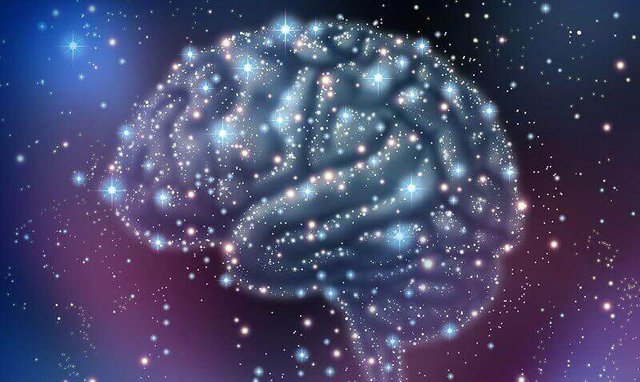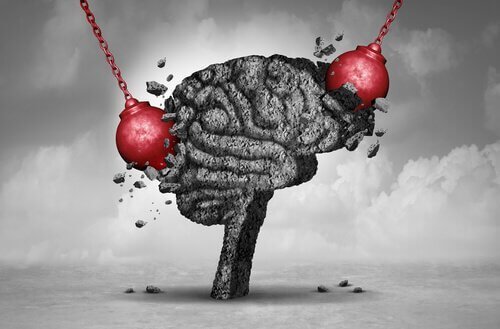The brain protects you from your traumatic memories - ¡DISCOVER HOW!
American novelist Richard Matheson has suggested that "birth implies the trauma of misunderstanding." Does this man mean that the mere fact of being born would correspond to the first of our traumatic memories?


Be that as it may, you, like me, do not remember the moment of our arrival in the world. Something normal, like not remembering our first years of life. However, surely there are other episodes that, because they are traumatic, do not seem accessible in our memory either. We will discuss these traumatic memories as part of this article.

Traumatic experiences and memories
Experiences, especially during childhood, greatly influence our development. In the case of negative experiences, the impact can be enormous. Many of these experiences, once they become lived episodes and memories, can remain in our minds with great intensity. In other words, the emotional imprint they leave is very powerful.
Episodes of emotional or physical abuse of close relatives, for example, leave significant psychological consequences. In this case, the brain often tends to "feel guilty", and it seems that this is precisely the mechanism that is also responsible for protecting us from the most traumatic memories.
"Experience is one of the causes of success or failure, we do not experience the impact of our experiences, called trauma, but we adapt it to our objectives".
-Alfred Adler-

Blocking memories
Clinical psychologist Lidia García Asensi draws a curious parallel between the brain and the computer. According to her, our brain would act by processing information in the form of folders, which are organized and stored. However, if a memory appears that exceeds its capacity, it is saved as an experience lived in a different memory network than usual.
What does the psychologist mean by this parallelism? That before the traumatic memories that our brain can not or does not want to treat, because they have managed to change us in a physiological and emotional way, they are isolated and separated so as not to generate too intense emotions. and hard to bear
In fact, we know that very harmful and traumatic experiences can alter the chemical balance of the brain. This happens when an event is difficult to manage and we can not understand it, so its acceptance and processing is very complex.

Is this blockage positive?
We can consider this blocking of the brain as positive because it protects us from trauma and from complicated experiences. However, we must emphasize that this is not always the case, especially in the long term, since "setting aside" does not mean forgetting completely or preventing an experience from influencing us. We are talking about a real untreated event, that is, an important episode that did not make sense and that we did not integrate positively and consistently into our personal biography.
In other words, it is possible that a "stimulus activator" appears later, in the form of a new situation or experience, which will cause the recurrence of this memory. It happens unconsciously, but the smallest event, no matter how insignificant it may seem, could reactivate it and make us feel like we were at the time of the trauma.
It is true that most memories end up being forgotten. However, those who refer to too intense experiences are never forgotten, they simply remain isolated and untreated, asleep, anesthetized. Then, if they are not contextualized and confronted, if they reappear, the damage can be very important insofar as they can make us feel very badly and terribly disoriented.

Advantages and disadvantages of brain protection against traumatic memories
As we saw earlier, this automatic protection of our brain can help or harm us. It has its advantages and disadvantages, although it will always be better to try and overcome a traumatic event. However, this obviously is only possible if we remember it.
On the other hand, the brain frees us from the suffering that these traumatic memories assume. Therefore, the unpleasant consequences will be stifled in some way in our daily lives.
"Once the trauma is under control, fear is of little use and decreases."
-Martin Seligman-
However, there may be times when a person feels some discomfort without being able to determine its origin. It is possible that our emotional state is always influenced by a memory that our memory would have hidden.


It is not easy to detect this type of trauma to the extent that most are very well hidden, dissociated and even blocked. But it is essential to work on past experiences because, by not doing so, we can feel overwhelmed by emotions of which we do not know the origin, so it will be very difficult to regulate them.
- Note of edition: what is exposed in this article responds to a memory operation model that adapts well in many cases; however, more research is needed to rule out alternative hypotheses, which also try to explain these phenomena.




There are two important brain structures that are activated during traumatic experiences and how to overcome the feelings. One is called amygdala, which is involved in emotional reactions, and second is prefrontal cortex. According to a research, the coordinated effort between these two brain structures enables us to extinguish painful memories. Therefore, a working connection between these regions is important to abolish traumatic memories.
very good!! good contribution dear friend @darlene.kitchen comments like this give much value to culture, are an excellent contribution to STEEMIT, blessings
I think this is naturall to happen . I mean the brain does whatever keeps us in the confort zone . Thats why the concequences .
Right